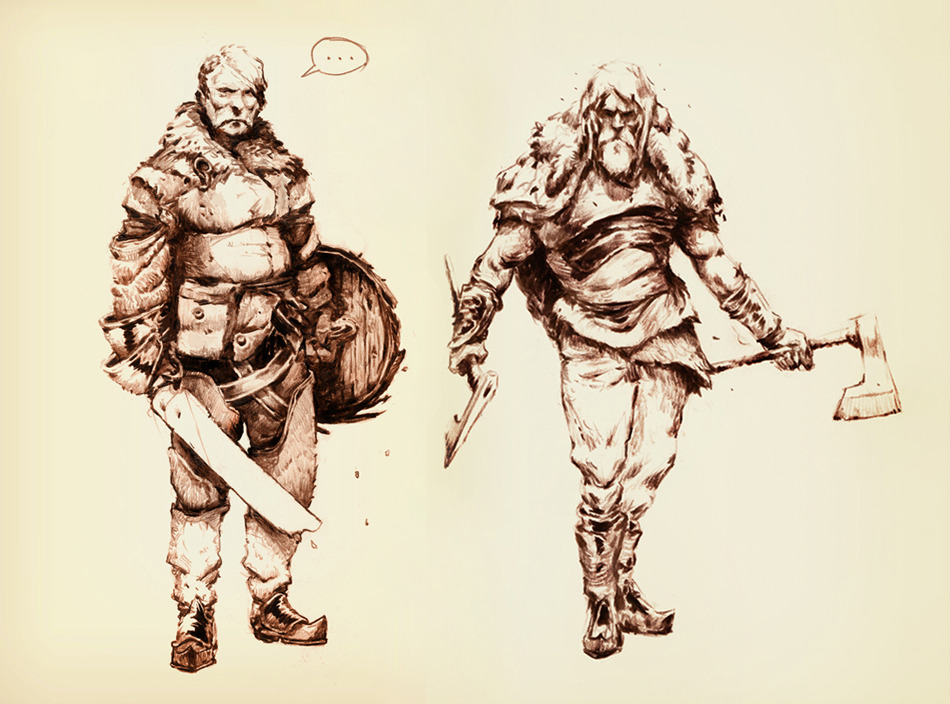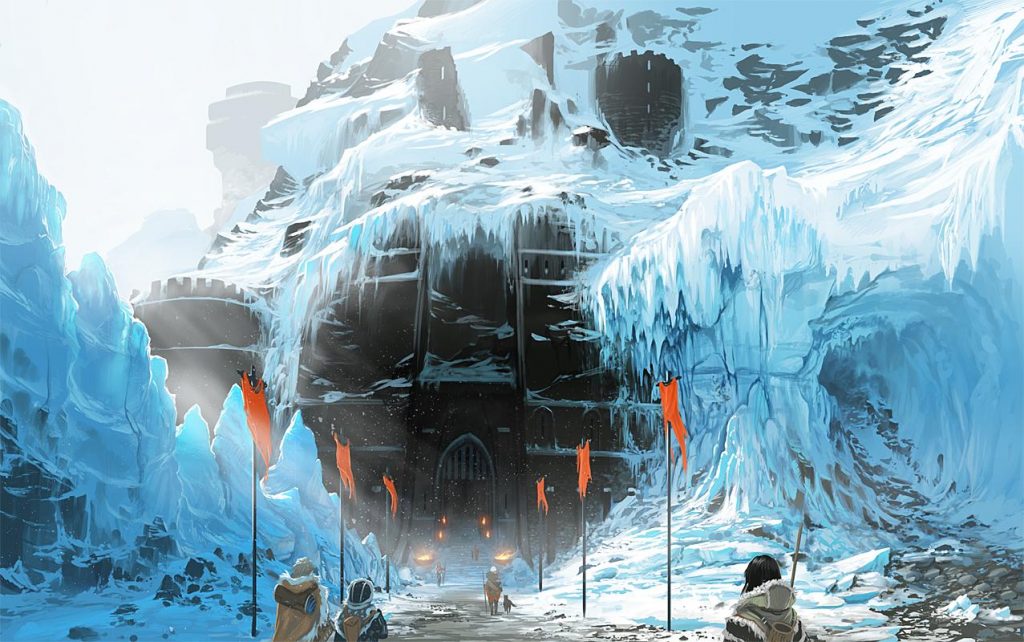GRIN was a video game developer based in Stockholm, Sweden. Founded by Bo and Ulf Andersson in 1997, that developed many popular games, as Ballistics, Bionic Commando 2009 and a couple of Tom Clancy´s Ghost Recon titles. Sadly on the 12 August 2009 GRIN filed for bankruptcy and the studio had to close down. Before the closure of the company, the developer was working on a mysterious Final Fantasy spinoff title for Square-Enix, that was known with the code-name “Fortress“.
As we can read in GRIN’s official website:
It is with a heavy heart we announce today that GRIN has been forced to close its doors. This as too many publishers have been delaying their payments, causing an unbearable cashflow situation. […] Looking back at twelve years of games, titles such as Ballistics, Bandits, GRAW 1 & 2, Bionic Commando Rearmed, Wanted: Weapons of Fate, Terminator: Salvation, Bionic Commando and our unreleased masterpiece that we weren’t allowed to finish; it has been a great ride.
The game was not originally going to be a Final Fantasy game at all, and was conceived as an original idea designed by Ulf Andersson, one of the founders of Grin. While the Grin team were developing Bionic Commando for Capcom, Yoichi Wada from Square Enix visited Grin and loved what he saw and proposed them to pitch a new game, using the Lord of Vermillion IP. Grin used their original idea to develop a full pitch, and Square Enix seems to have been so impressed that they decided to use the Final Fantasy IP for this new game.

The original version of Fortress was to have a very Nordic art style and many of the enemies were said to be based on Viking tales. After it was decided the game would become a Final Fantasy spin-off, Grin decided to tweak the art style but still keep with an overall Nordic theme in a Final Fantasy world. It was then decided that the game would be set in the world of Ivalice, the world from Final Fantasy Tactics, Final Fantasy XII, and Vagrant Story, after the events of XII.
Lead character artist Bjorn Albihn described Fortress as “a game with epic scale in both story and production values.” There have been many screenshots and even an early tech demo video released of the game, and there is no denying it looked beautiful, with a rich, yet incomplete open world to explore. There was also a character model created for an early boss which would be a giant Malboro, a popular Final Fantasy enemy. The player would have to scale the seaweed on the creature’s back to be able to drop bombs on its weak points. Some concept art can also be seen of this boss.
A programmer who worked for GRIN describes his contribution to Fortress as follows:
After Bionic Commando I got to work one month on this final project at Grin
The core game was about you and a small group of loyal soldiers defending the fortress against a army invading from the sea. They had ships and monsters in endless supply and you had to keep your troops morale high and move around the fortress and defend key areas of it as the enemy attacked. Between attacks you could travel inland and explore some form of ancient temples or something.
My task was to create a system that would support a huge amount of characters fighting in and around the fortress. Besides the need for the player to be able to jump in and affect all battles a system to script events in the combat was also needed. All without making them look like bad background actors in a movie. The goal for the game was to keep around 2200 characters in the combat, 2000 attackers and 200 defenders.
It was reported that there was a deal in place with Square for them to pay $16.5 million for the production of the game, to be paid with increments when the project would hit a set of milestones within its development. This is where the trouble started for Grin, though. In an interview on Swedish site Nojes Bladet, Bo and Ulf Andersson, the founders of Grin, said, “they starved us to death.” No money came in from Square for months. They kept up development on the game anyway, which cost the company a fortune and months later, still without any payment from Square, Grin were forced to close all other offices except the base office in Stockholm. What happened between Square and Grin?

In 2009 Grin released two games that they had been developing: Terminator Salvation and Bionic Commando. Both of these games came out to very negative reviews and low sales, a fact that made Square nervous about the upcoming Fortress game. Ulf Andersson even stated in the same interview that Square were then demanding constant updates and all of the games assets such as code, artwork and music files. These requests took away time and resources from development, making it very stressful for Grin to keep working. According to Square, though, Grin were not meeting any of the milestones that were promised and this is why they had made no payments. The Andersson brothers also stated that Square were now not happy with the Nordic art style of Fortress and wanted them to change it to make it more like a classic Final Fantasy game. Grin then tried to change the game but Square was reportedly still not happy with the way it looked. Ulf says that he wanted to test Square, and so he sent them an image from Final Fantasy XII, but they still said that even this image was not in the Final Fantasy style.
The relationship between the two companies was on the verge of breaking down. In late August 2009, Square officially announced to Grin that no payments would be made to the company. A few days later, Grin was forced to declare bankruptcy as Sweden has very strict laws on a company operating under a heavy debt load.
Some early assets, details and concept arts for this unreleased project were found thanks to Hey Hey, Kotaku, NeoGAF and Gamespot, so at least some documents of its existence can still be preserved. It’s currently unknown if Square-Enix could try to fund the project with a different developer, but as they have written on Destructoid, it seems that S-E still have few millions of debts with GRIN for their work.
Although the Andersson brothers’ first company Grin had to be shut down, this did not keep them from game development, and they went on to create a new development studio called Overkill Software. This studio has released the very popular Payday: The Heist and Payday 2 both of which have sold extremely well.
Thanks to Sam Batten, Dominarul Cel Elf, Brad and Robert Seddon for the contributions!
Images:
Videos:

![Final Fantasy Fortress [Cancelled – Xbox 360 / PS3] Final Fantasy Fortress [Cancelled – Xbox 360 / PS3]](https://www.unseen64.net/wp-content/uploads/2009/09/final-fantasy-fortress-cancelled-670x300.jpg)